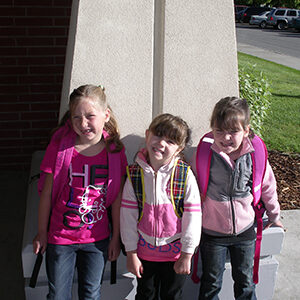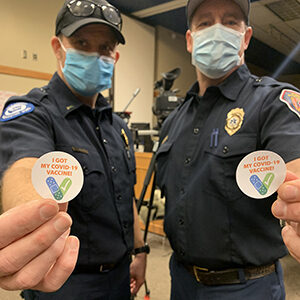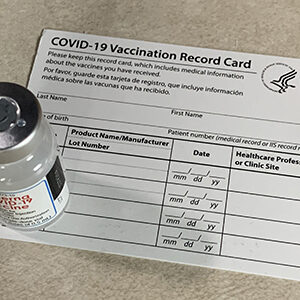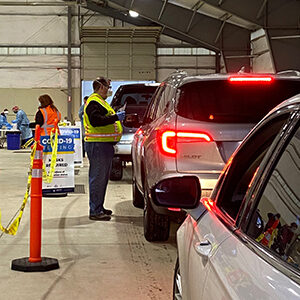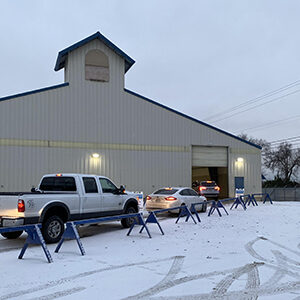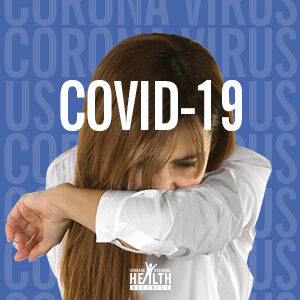
News tagged with “covid-19”

Blog Entries tagged with “covid-19 ”

How to Celebrate St. Patrick’s Day Safely
It might be safe to assume that by this point, we’re getting pretty good at celebrating holidays virtually or safely distanced. Every day, we’re getting closer to being able to celebrate our favorite holidays and events with the people we love but until then, it’s just as important to keep wearing masks, washing your hands, maintaining at least 6 feet of physical distance in public spaces and avoiding large gatherings where safe distancing is difficult.

Staff Highlight Series: Carma Fuhlendorf
When the pandemic hit, Spokane Regional Health District (SRHD) had to quickly reassign and hire people just for the response. One of those people hired for the response was Carma Fuhlendorf. She was hired to work as an administrative assistant in Disease Prevention and Response which, as the name tells you, is right in the middle of the fight against the pandemic in our region. Carma says that as a new team member she had no clue about the stress level, dedication, commitment, and love for the community her coworkers would have. Carma references the 60+ hour weeks and often seven-day work weeks a lot of the team has put in throughout the pandemic.
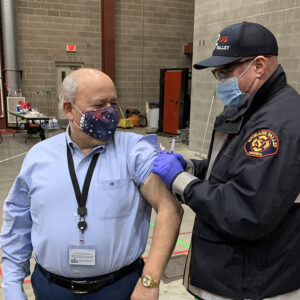
A Look Inside the EMS Drive-through Vaccination Clinic
In late December, nearly a year after the pandemic began, it was announced with great excitement that vaccinations against COVID-19 would begin in Washington state.
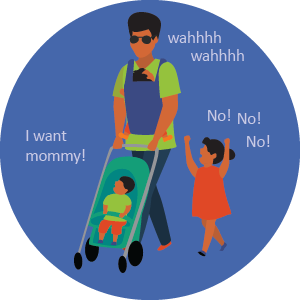
April is National Child Abuse and Neglect Prevention Month
New beginnings always seem more possible during springtime. Longer days, warmer temperatures and green shoots beginning to emerge from the cold ground after a long winter remind us that nothing lasts forever. April is national Child Abuse and Neglect Prevention month.
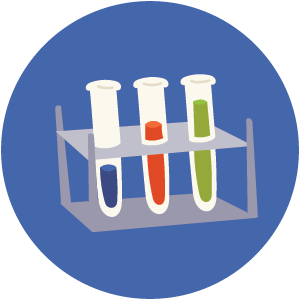
Everything you Want to Know About the Johnson & Johnson Vaccine
By now, you’ve probably heard the news that the third COVID-19 vaccine, Johnson & Johnson, was authorized for distribution but was temporarily paused before being authorized once again for use in the United States. Even though another vaccine in our toolbelt is great news and gives us another tool to manage the spread of COVID-19, there are a lot of questions about the vaccine that we’re excited to answer.

Not Sure If You Should Vaccinate Your Kids for COVID-19? We Get It.
Parenting is full of tough choices that are neither right nor wrong, but somewhere in the middle. The choice you make comes down to your family’s situation and the amount of risk and benefit there is. Have you noticed during the pandemic these choices have been harder, and critics on both sides have been louder?

How to Enjoy a Safe Memorial Day Weekend
Memorial Day is often considered the unofficial kick-off to summer, which is one of the best times of year to experience everything the Spokane area has to offer. Even though this is the second time our community we will be experiencing the holiday in a pandemic, there are still plenty of ways to enjoy a safe three-day weekend.
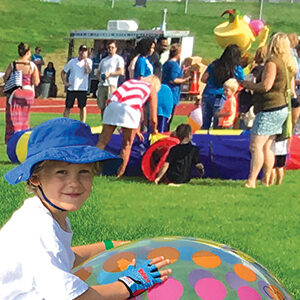
Event Planners & Entertainment Venues Plan for a Safe Start
Most people would agree that throughout the pandemic they missed out on an event they typically enjoy. Whether the loss was celebrating a major life event, attending an annual festival, or just part of a routine, it was one more thing that added stress to people in our community. That’s why in February of this year, SRHD began a group that would shift the focus from what we can’t do to what we can do in a safe way.

Reopening
After 15 months, Washington has reopened. Fifteen months. We’ve made a lot of changes, but what exactly does “reopening” mean? When the governor or state officials talk about reopening, they’re referring to businesses. The main difference as of June 30, is that businesses and events are open at 100% capacity. The exception is for indoor venues with a capacity of 10,000 or more; they are still limited to 75% capacity. Most businesses — including restaurants, bars, movie theaters, grocery stores and offices — get to operate like they did before the pandemic, as long as they’re following the workplace safety requirements set by the Washington State Department of Labor & Industries (L&I).

Supporting Our Kids
Our kids are struggling. Their mental and emotional health has worsened over the last year and it’s going to take our entire community to help them through this time. Isolation, disrupted routines, and loss have increased negative emotions and the need for resources. If you’re a parent or a child who is struggling right now, there is help.

COVID-19 Cases Reported in Spokane County Healthcare Workers
It is no secret that healthcare workers all over the world have been significantly affected by the SARS CoV-2 pandemic, in both caring for COVID-19 patients and being patients themselves. According to the World Health Organization (WHO), healthcare workers account for 1 in 7 reported COVID-19 cases globally.
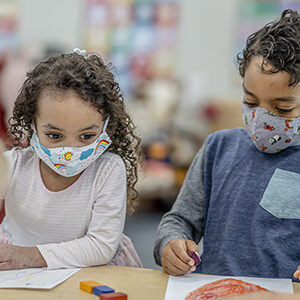
COVID-19 Updates in Childcare
COVID-19 cases and outbreaks continue to pop up in childcare, daycare, and preschool facilities. As a friendly reminder, all COVID-19 cases within Spokane County should be reported to Spokane Regional Health District (SRHD) as soon as possible and all COVID-19 positives and close contacts should be advised to isolate or quarantine at home as appropriate.
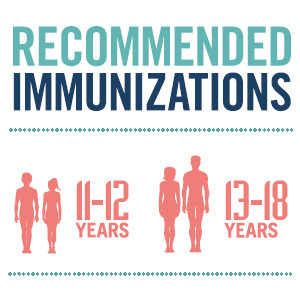
The Status of Childhood Vaccine Rates in Washington State
COVID-19 disrupted both in-person learning and routine well-child visits for many children during the last year. We all want our kids to be back in school safely, and that means getting caught up on vaccines that were missed during the past year. The Centers for Disease Control and Prevention’s (CDC) public sector vaccine ordering data show a 14% drop in childhood vaccines for the period of the 2020-2021 school year compared to the 2018-2019 school year, and measles vaccine is down by more than 20%. Catch-up vaccination will require efforts from healthcare systems, healthcare providers, schools, state and local governments, and families.
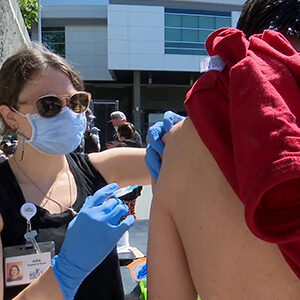
COVID-19 Vaccination
Many individuals in Spokane County are still unsure of how to get vaccinated—this includes both adults and adolescents age 12 and older If your practice is not currently offering COVID-19 vaccine, please share the sites below with individuals inquiring about vaccination.
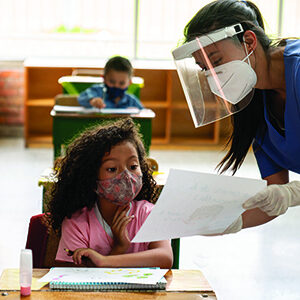
Clinical Pearls for Providers about COVID-19 Testing for Return to School with Children
Return-to-school requirements for children being evaluated for COVID-19 infection or exposure to someone with COVID-19 may differ from your utilization of testing in your practice. Below are some clinical pearls that will help your pediatric patients and their families better navigate the return-to-school process after an illness or exposure.
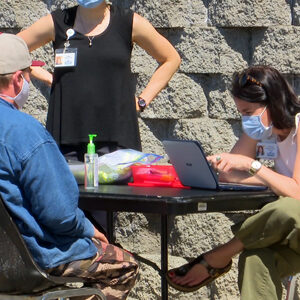
COVID-19 in Congregate Settings
Across Washington state and the country, there have been outbreaks of COVID-19 in many settings. Some of the most difficult outbreaks to control and manage are those in congregate settings. Washington state and Spokane County have had their share of these outbreaks to manage. In Spokane County, the Spokane Regional Health District (SRHD) epidemiology team has managed outbreaks in homeless shelters, family shelters, drug treatment centers, behavioral health facilities, county correctional facilities, supported living facilities and group homes.
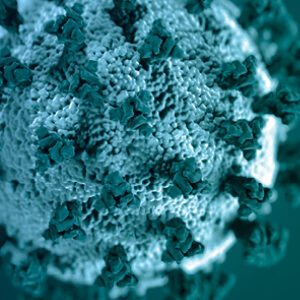
Variants of Concern in Spokane County and Beyond—Key Information for Clinicians
SARS-CoV-2, like other coronaviruses, mutates and produces variant strains as it spreads to susceptible hosts. The longer we go with suboptimal vaccination coverage and insufficient herd immunity in Washington state, the United States, and the rest of the world, the more opportunity for variants of concern to spread, and potentially, for different variants of concern to emerge.

The Shot Clock is Running!
Ok, Spokane, we have some fun events coming up. Yes, we missed out on a lot of them last year, so let’s do all we can to make sure they continue. We also want to make sure that anybody who wants to get out and enjoy the fun can. It’s not a community event without the community.

Staff Highlight Series: Sara Rodgers
A lot of information and data flows in and out of the Spokane Regional Health District (SRHD). This information both reflects and helps us shape our community. It’s important to have a dedicated team who can help others understand what information is important, how to evaluate it, and how it can be used to guide public health. One member of that team is Sara Rodgers.

The Delta Variant
Navigating the pandemic has been a lot like building a plane while you fly it. Leaders and officials had to make decisions and put together plans as the world was learning about how this new virus even works. We had to learn from our mistakes quickly and move on to the next challenge. We’ve come a long way since the beginning, however, there is still new information every day that changes the way we understand and respond to the pandemic.

Vaccine Timeline
The timeline for the COVID-19 vaccine can be unclear to many, but if you want to look at the big picture, research began all the way back to the 1930s with the discovery of the first coronavirus infection in chickens. Decades later in 1965 Dr. June Almeida was able to identify a coronavirus under a microscope.

Hispanic Heritage Month
The COVID-19 pandemic has highlighted health inequities in our country. The Hispanic population was one that was hit harder by COVID-19 than others. However, the contributions from members of the Hispanic community have positively impacted every level of the pandemic response from global efforts to work in our very own community. During Hispanic Heritage Month, we are taking time to recognize how important these contributions have been.
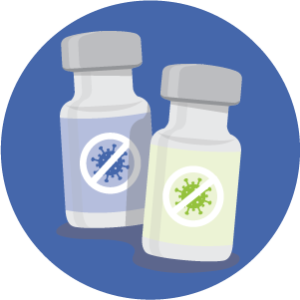
Making Sense of COVID-19 Vaccine Booster and Third Doses
Now, that the information about COVID-19 vaccine booster and third doses has been reviewed, how do we make sense of it all? We will break it down here the best we can. You can also checkout SRHD’s vaccination FAQ page for more information. To get advice specific to your situation and health history it’s always best to discuss options (and questions!) with your primary care provider.
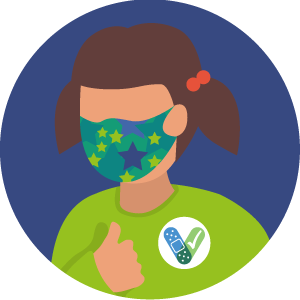
COVID-19 Vaccine for Kids 5-11
Parents across the country are breathing a sigh of relief that a COVID-19 vaccine is now approved for emergency use in kids aged 5-11. We understand how exciting it is. It’s true that, overall, children have seen less severe cases of COVID-19 than adults, but that doesn’t mean they are not at risk. The question for any medical intervention should never be whether it is perfect, but rather does the benefit of the treatment outweigh the risks. In this case, multiple agencies with the most qualified professionals across the United States have almost unanimously agreed that yes, COVID-19 poses much more of a risk to our children than vaccination.
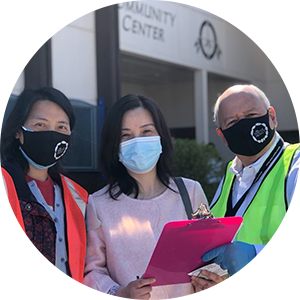
Native American Heritage Month
November is Native American heritage month, and we are excited to share one of many ways the communities with this rich heritage have been leaders in public health.
![Get [Mentally] Fit in 2022](https://assets.srhd.org/assets/media/images/transforms/_transform300Square/300x300_DancingGma.png)
Get [Mentally] Fit in 2022
We know it’s tempting to grab that magazine or click on the ad that promises to get you in shape in the new year. However, let’s not forget a part of our body that often gets overlooked when it comes to getting strong and healthy. Let’s show some love to our brains this year. Whether you call it brain health or mental health, here are some simple (and some fun) tips to get mentally fit in 2022.
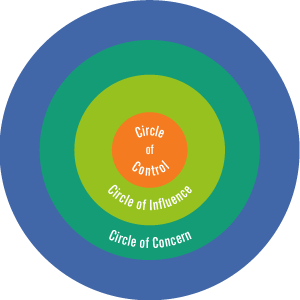
Circle of Control
Chances are you have been affected by a school or childcare closure, lack of staff at the workplace or have had to quarantine because of the rise in COVID-19 infections in the last month. The uncertainty can be exhausting, especially after two years of a pandemic. There are, however, things we can focus on to help find balance with feelings of reassurance and confidence.

Outdoor Mask Mandate Lifted: What to Keep in Mind
Starting today, Feb. 18, the mask mandate for outdoor events and gatherings has been lifted by Gov. Inslee. We know lifting the outdoor mask mandate can give our community a glimpse of hope that the pandemic is nearing its end. However, it's important to remember that cases of COVID-19 are still being reported in Spokane County, and healthcare workers are continuing to provide critical care to those in the COVID-19 ICU.
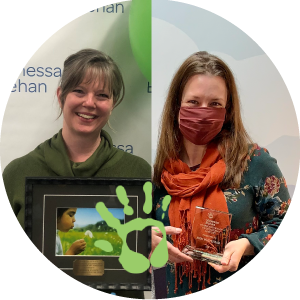
Two SRHD Staff Members Are Honored with Awards from Vanessa Behan
SRHD has extremely dedicated staff who are always working to create a healthier community. Often some of the most important work goes on behind the scenes. Recently, however, two of our staff received awards of recognition from Vanessa Behan, an organization that provides safety and resources for our community’s children and families. Erin Whitehead, epidemiologist, was presented the Heart of Gold award and Jennifer Hansen, health program specialist, was recognized as the Child Advocate of the Year.
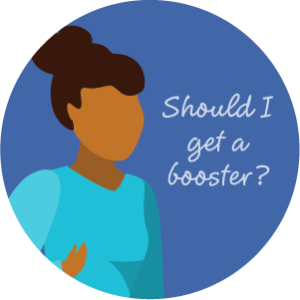
Let's Talk Boosters
Let's talk boosters! First off, booster shots can be an important tool in helping build your immunity against COVID-19. If you received your initial vaccine series of either Pfizer or Moderna or one dose of Johnson & Johnson, kudos to you! You took the first step in protecting yourself against COVID-19.

Indoor Mask Mandate Lifted: What to Know
Last month, the outdoor mask mandate was lifted by Governor Jay Inslee. Starting tomorrow, the indoor mask mandate will be lifted as well. However, there are still places in our community where masks will be required, including locations mandated at the federal level, healthcare settings, and some private businesses.
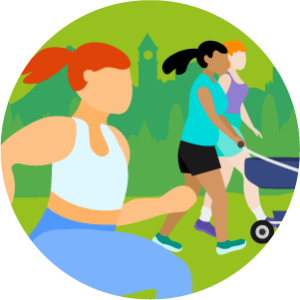
Bloomsday Is Here!
Bloomsday is THIS weekend! Whether you plan to walk, run, or cheer on friends and family, we want to make sure your Bloomsday fun can also remain a safe experience. Here are some things to keep in mind before heading downtown on Sunday.

Asian American and Native Hawaiian/Pacific Islander Heritage Month
May is Asian American and Native Hawaiian/Pacific Islander (AA and NH/PI) Heritage Month, a time to celebrate the AA and NH/PI communities’ contributions to public health. Throughout these diverse populations is strength, resilience, and ingenuity that has changed the landscape of public health in our country. Here are a few of the communities’ many health heroes.

COVID-19 Vaccines for Kids Under 5 Receive Emergency Use Authorization
It’s been 1 ½ years since the first COVID-19 vaccine received an emergency use authorization through the Food and Drug Administration (FDA). Since then, many parents of young children have been waiting for the opportunity to protect them from COVID-19, and now vaccines for children 6 months – 4 years have received emergency use authorizations. With each approval there are always questions, so let’s dig into questions that are coming up right now.


